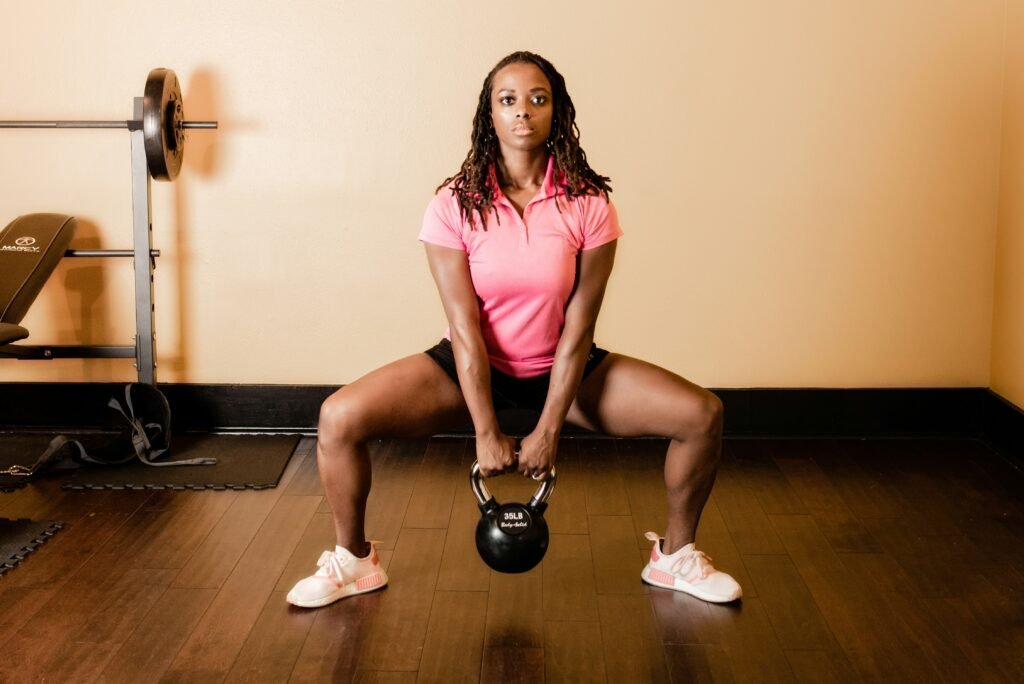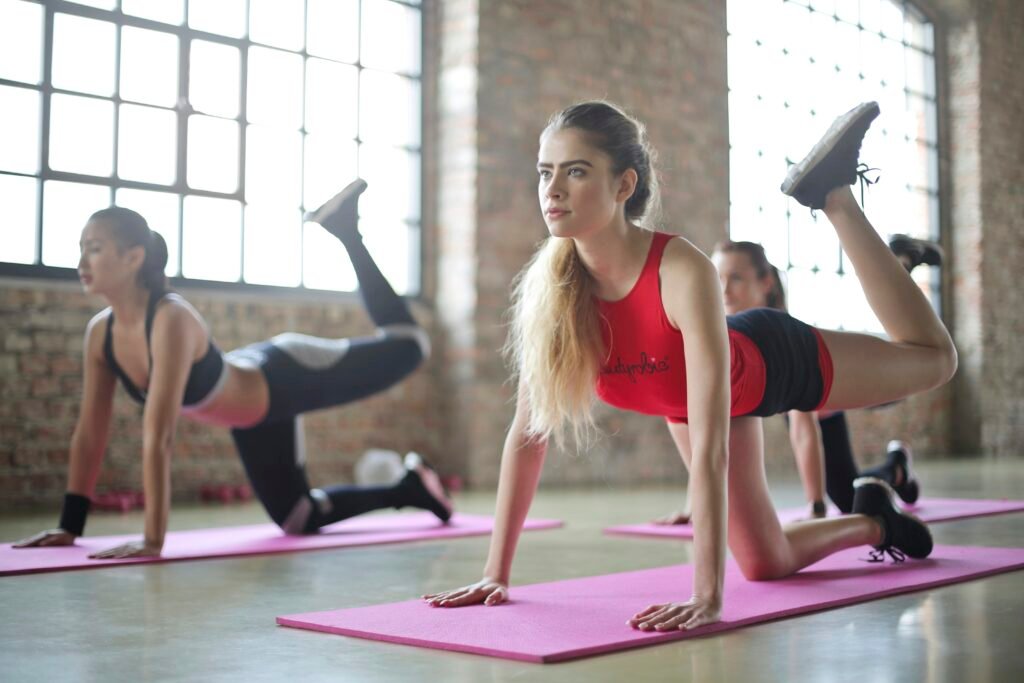Defining Fitness for Your Own Goals
Have you ever wondered what “being fit” really means? You might have heard many different definitions, but the truth is, fitness looks different for everyone. In this article, we will explore how you can define fitness based on your own unique goals and aspirations.
Understanding the Concept of Fitness
Fitness is often associated with physical health and the ability to perform daily tasks with ease. However, fitness is not just about how much you can lift or how fast you can run. It encompasses a wide range of aspects, including strength, flexibility, endurance, and overall well-being.
When defining fitness for yourself, it’s essential to consider not only your physical condition but also your mental and emotional well-being. True fitness is a holistic approach that takes into account all aspects of your health.
Setting Realistic Fitness Goals
Setting goals is a crucial step in defining your fitness journey. When setting goals, it’s essential to be realistic and specific. For example, instead of saying, “I want to lose weight,” you could set a goal like, “I want to lose 10 pounds in three months by exercising three times a week and eating a balanced diet.”
By setting specific and achievable goals, you can track your progress more effectively and stay motivated along the way. Your goals should be challenging but attainable, pushing you out of your comfort zone without setting you up for failure.

Assessing Your Current Fitness Level
Before you can define your fitness goals, it’s essential to assess your current fitness level accurately. This includes evaluating your strength, flexibility, cardiovascular endurance, and overall health. You can do this by performing various fitness tests or working with a personal trainer to get a more comprehensive assessment.
Understanding where you currently stand in terms of fitness can help you set realistic goals and create a personalized workout plan that aligns with your abilities and limitations. It’s crucial to be honest with yourself during this assessment process to avoid injury and burnout.
Determining Your Personal Fitness Preferences
When defining fitness for your own goals, it’s crucial to consider your personal preferences and interests. Fitness is not one-size-fits-all, and what works for one person may not work for another. Do you enjoy dancing, lifting weights, running, or practicing yoga? By identifying activities that you genuinely enjoy, you are more likely to stick with your fitness routine and achieve your goals.
Experiment with different types of workouts and activities to find what resonates with you. Whether it’s high-intensity interval training, Pilates, or swimming, there are endless options to choose from. Remember that fitness should be fun and sustainable, so don’t be afraid to try new things until you find what works best for you.

Creating a Balanced Workout Routine
A balanced workout routine is essential for achieving your fitness goals and maintaining overall health. It should include a combination of cardiovascular exercise, strength training, flexibility work, and rest days. Cardiovascular exercise can improve your heart health and endurance, while strength training builds muscle and bone density.
Flexibility work, such as stretching or yoga, can improve your range of motion and reduce the risk of injury. Rest days are equally important, as they allow your body to recover and repair itself. By incorporating these elements into your workout routine, you can achieve a well-rounded approach to fitness that addresses all aspects of your health.
Sample Workout Routine
Here’s an example of a balanced workout routine that you can tailor to your fitness goals and preferences:
| Day | Workout |
|---|---|
| Monday | 30-minute run or cycling workout |
| Tuesday | Full-body strength training (squats, lunges, push-ups, rows) |
| Wednesday | Rest day |
| Thursday | HIIT workout (high-intensity interval training) |
| Friday | Yoga or Pilates session for flexibility and relaxation |
| Saturday | Active rest day with a leisurely walk or bike ride |
| Sunday | Long run or hike to build cardiovascular endurance |
By alternating between different types of workouts throughout the week, you can challenge your body in various ways and prevent boredom or burnout. Feel free to adjust the intensity and duration of each workout based on your fitness level and goals.
Tracking Your Progress and Adjusting Your Goals
Once you have defined your fitness goals and established a workout routine, it’s crucial to track your progress regularly. This can include keeping a workout journal, taking measurements, tracking your food intake, or using fitness apps and devices to monitor your activity levels.
Tracking your progress allows you to see how far you’ve come and identify areas where you can improve. It also helps you stay motivated and accountable on your fitness journey. If you find that you’re not making progress towards your goals, don’t be afraid to adjust your workout routine or seek help from a fitness professional.
Tips for Tracking Progress
- Set specific milestones to measure your progress, such as losing inches, increasing your strength, or improving your endurance.
- Take progress photos to visually see changes in your body composition over time.
- Keep a detailed workout log to track the exercises, sets, reps, and weights used during each workout.
By regularly assessing your progress and adjusting your goals as needed, you can stay on track and continue to work towards your fitness aspirations.

Embracing a Healthy Lifestyle Beyond Exercise
Fitness is not just about working out; it’s about adopting a healthy lifestyle that supports your overall well-being. This includes eating a balanced diet, getting enough sleep, managing stress, and practicing self-care. Exercise is only one piece of the puzzle when it comes to leading a healthy and fulfilling life.
To enhance your fitness journey, consider incorporating other healthy habits into your daily routine. This can include meal prepping healthy meals, prioritizing sleep, practicing mindfulness and relaxation techniques, and seeking support from friends, family, or a health professional. By taking a holistic approach to health, you can achieve greater balance and vitality in all areas of your life.
Seeking Support and Accountability
Embarking on a fitness journey can be challenging, especially when faced with obstacles or setbacks. It’s essential to seek support and accountability to help you stay motivated and on track towards your goals. This can include working out with a friend, joining a fitness class or club, hiring a personal trainer, or participating in online communities or challenges.
Having a support system can provide encouragement, guidance, and motivation when you need it most. It’s essential to surround yourself with positive influences that align with your fitness goals and aspirations. Remember that you are not alone on your fitness journey, and there are resources and people available to help you succeed.
Celebrating Your Achievements Along the Way
As you progress on your fitness journey and work towards your goals, don’t forget to celebrate your achievements along the way. Whether it’s hitting a new personal record, completing a challenging workout, or making healthier lifestyle choices, each milestone is worth acknowledging and celebrating.
Celebrating your achievements not only boosts your self-confidence and motivation but also reinforces the positive habits and behaviors you’ve been working on. It’s essential to recognize your hard work and dedication and take pride in how far you’ve come on your fitness journey. Remember that every step forward, no matter how small, is an accomplishment worth celebrating.
Conclusion
Defining fitness for your own goals is a personal and individualized process that requires self-reflection, goal setting, and commitment. By understanding the concept of fitness, setting realistic goals, assessing your current fitness level, and creating a balanced workout routine, you can establish a foundation for success on your fitness journey.
Remember to consider your personal preferences, track your progress, embrace a healthy lifestyle, seek support and accountability, and celebrate your achievements along the way. Fitness is a journey that evolves over time, so be patient with yourself and stay committed to your goals. With dedication, perseverance, and a positive mindset, you can define fitness on your terms and achieve the health and well-being you desire.